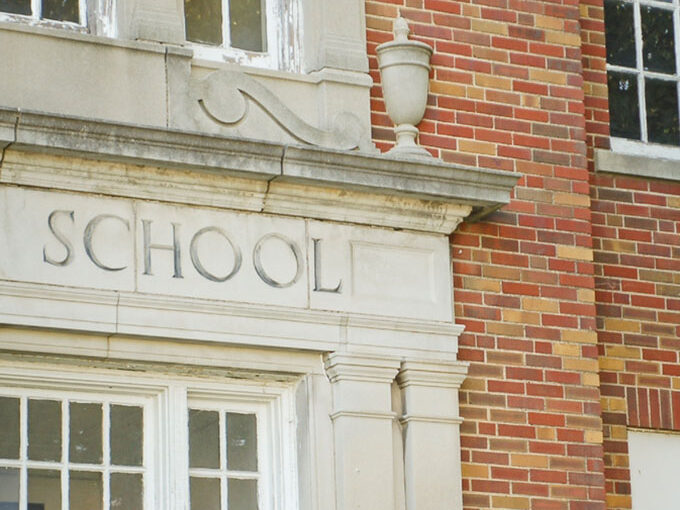This month, we comment on:
- HMRC guidelines for compliance on remedial works including the replacement of defective cladding,
- An important Upper Tax Tribunal decision in a case regarding leased accommodation used to provide short stays,
- An update on HMRC guidance on pre-VAT registration VAT recovery,
- The new EU place of supply rules regarding certain services provided virtually, and
- The new SME scheme in the EU.
HMRC has issued their views on cladding remediation in Revenue & Customs Brief 3/24 and Guidelines for Compliance 11.
The construction sector has been waiting many years for this guidance. It is perhaps disappointing that only general comments are being made by HMRC now, which do not address some of the key issues affecting many housebuilders, register providers of social housing, BTR and student accommodation providers.
The guidance provides HMRC’s view on whether they consider remediation works could be zero-rated if they qualify as “snagging”, and it largely rules this out.
On first read, you could be forgiven for thinking snagging zero-rating should be applicable. HMRC’s internal manuals (VCONST02600) states that: “snagging is the carrying out of remedial works to correct faulty workmanship or replace faulty materials” and by most accounts the cladding being replaced would be considered by most to be the replacement of faulty materials.
The new guidance goes on to state for the works to qualify as snagging the work must be undertaken as part of the original supply of construction services and the following conditions apply:
- There must be a fault to the original construction of a qualifying building that was constructed at the zero rate or reduced rate of VAT,
- There is an obligation to correct the fault under the original contract,
- A person with ‘person constructing status’ must undertake the remedial work to satisfy the link to the original construction, and
- There is no new or additional supply or charge made for the remediation by the original developer or the original contractor.
Even here you could stop after reading this and most people would expect the remediation works to qualify, other than perhaps in respect of the final point regarding further charges. However, HMRC confirms later in GfC11 that a latent defect clause within the building contract does not constitute an obligation to correct a fault, it only allows the bringing of legal proceedings. Therefore, zero-rating may not apply. However, the developer often has a statutory or contractual obligation to remediate, therefore this is an area that could end up in the courts where HMRC doesn’t acknowledge or agree with this.
Where zero-rating isn’t available then the issue becomes about VAT recovery. This will generally depend on whether these costs have a ‘direct and immediate’ link to a past taxable supply, or to future taxable supplies. It would be easy to assume that it should relate to the historic sale or construction of the flats. Both of which would generally allow for recovery. However, for developers who have sold long leases in flats (zero-rated) but retained the freehold reversion, and now charges exempt ground rent or service charges, HMRC’s view in its guidance is that works to bring the property up to current safety standards relate only to the ongoing rental income and are not recoverable as a result. Whilst there may be some VAT case law that supports this, it appears to us to be difficult to reconcile with the reality of the situation where it may not be possible under Statute for the developer/landlord to pass these costs on through the service charge.
Where a developer has sold flats but agrees to carry out remedial works to protect their reputation, HMRC may accept that the VAT is an overhead cost where the developer will seek to recoup this cost through future sales of other properties. However, if you are continuing to receive exempt ground rents or don’t intend to make future taxable sales, HMRC appears to see no basis to recover.
Therefore, developers who developed properties in SPVs with no future activities, or where they are receiving exempt rents, face suffering an additional 20% cost. It may therefore be advisable for costs to be incurred by entities that will be making future taxable supplies and who aren’t in receipt of exempt rental income and don’t suffer from partial exemption restrictions. However, that may not be possible.
Comments
We welcome the guidance from HMRC, but it doesn’t cover all the complex scenarios that developers are encountering. It also doesn’t seem to take into account that two developers who constructed flats (for sale on long leases) with cladding that now needs to be remediated, face a potential 20% differential in the cost of carrying out that important work. All because one sold its entire interest in the property, one retained its interest, and some do and some don’t continue to use that vehicle for making taxable supplies.
We continue to make representations to HMRC to try and resolve some of the complex issues arising from HMRC’s current stance.
Please get in touch with Sean McGinness if you have any questions or would like to discuss further.
In 2023, the First-tier Tax Tribunal (FTT) agreed with Sonder Europe Ltd (Sonder) that it was obliged to account for VAT using a special scheme – the Tour Operators’ Margin Scheme (TOMS) – when providing serviced accommodation to travellers. As the costs Sonder incurred on its lease of the properties were exempt from VAT but its onward supplies were standard rated, the TOMS treatment resulted in significant VAT savings for Sonder, with VAT only being due on the margin, under TOMS.
As noted in our VAT Update – November 2023 – Saffery, HMRC appealed this treatment. The Upper Tax Tribunal (UTT) has now released its decision and agreed with HMRC that the FTT was incorrect to focus on the physical changes to the accommodation in deciding whether the bought-in supplies were materially altered. The FTT should have looked at the nature of the supplies received and made. The fact that the rights granted to the traveller (being a short-term licence to occupy) were significantly different from the rights granted to Sonder (being a long-term fully repairing and insurance lease) means that the supply by Sonder does not fall under TOMS and Sonder should have accounted for VAT on the full amount of income received.
Comments
The UTT’s decision is perhaps not unexpected, and the materially altered point proved to be decisive in meaning the supply made by Sonder was not within the scope of TOMS and therefore VAT on the full value of supplies was due.
No doubt HMRC will be relieved with the decision, as a ruling that the supply was subject to TOMS would likely have resulted in significant claims being lodged by operators in the sector with a similar business model. We are yet to hear whether Sonder will appeal the case further but certainly any businesses which have applied TOMS to similar supplies should consider whether VAT has been underpaid.
If you’d like to discuss further, please get in touch with John Butterfield VAT Director.
HMRC do allow in certain circumstances for newly VAT registered business to recover VAT incurred on costs prior to the date of registration. This normally means VAT can be recovered on services not more than six months prior to registration and four years for goods still on hand at the date of VAT registration.
Typically, this means a business can recover all of the VAT on computers and commercial vehicles it purchased, and still owns, up to four years before it registers for VAT.
In the case of private schools where their supplies of education were (until 1 January 2025) VAT exempt, HMRC are taking a different approach. Where a school has purchased goods that were used for previously exempt purposes, but these goods are still on hand when they register for VAT now, they cannot recover the VAT in full. In these cases, HMRC expect the value of the goods and also the VAT to be reduced to reflect the previous exempt use of these goods. HMRC has confirmed that it will generally allow an apportionment assuming an economic life of five years for tangible goods still on hand. Meaning a school who incurred VAT on computers or sports equipment purchased two years prior to the VAT registration and the introduction of VAT on school fees, should be able to reclaim up to 60% of the VAT, subject to any partial exemption restrictions and continued exempt use.
For services, private schools are unlikely to be able to recover any VAT on services received prior to VAT registration unless they can directly link the VAT to supplies of taxable education after 1 January 2025.
However, schools, and businesses in general, also need to be aware of any capital items. Under the Capital Goods Scheme where schools or businesses have incurred VAT on capital projects, such as land buildings, school sports facilities etc exceeding £250,000 plus VAT within the last 10 years, they may be entitled to recover a proportion of the original VAT, incurred before VAT registration, based on future use via the Capital Goods Scheme.
Comments
The regulations which provide the legal basis for pre-registration VAT recovery allow HMRC the discretion whether or not to permit it. Case law has determined that these regulations do not specifically allow for apportionment on the basis that HMRC is saying applies to private schools, however judgements suggest that once HMRC has permitted the VAT recovery in principle, the usual VAT recovery rules which are provided for elsewhere in VAT legislation would apply. On that basis apportionments are not uncommon, and indeed are required under partial exemption with respect to certain costs. It is interesting that HMRC has chosen to update its pre-registration VAT recovery guidance with specific reference to the situation regarding private schools not previously VAT registered, but having to register for VAT now due to the VAT liability change. It is also worth noting that with respect to the VAT recovery on goods, the position described would appear to disadvantage schools who were already VAT registered as they will not have the same opportunity with respect to historic VAT recovery, other than in the case of Capital Goods Scheme assets.
If you would like to discuss how to recover VAT or identify what can be recovered prior to VAT registration, please contact John Butterfield, VAT Director.
EU place of supply rules for business to consumer (B2C) services relating to cultural, artistic, sporting, scientific, educational, entertainment, or similar services, which are streamed or otherwise provided virtually have changed with effect from 1 January 2025.
The change impacts the provision of live webinars, distance learning courses involving live elements or similar services available through an online platform. The changes do not affect the VAT liability of services, and if a distance learning course qualifies for VAT exemption under provisions which relate to education, that treatment will not change.
Pre-1 January 2025, these services had a place of supply where the supplier belonged. The new rules put the place of supply to be where the customer resides. UK companies supplying such services should review their position as the changes may result in VAT registration obligations arising for them in the EU. The One-Stop Shop (OSS) would be available to simplify the VAT compliance position, enabling a single VAT registration rather than multiple registrations in each Member State. There is no threshold which would apply here for UK companies.
There is an additional issue for UK providers as under UK VAT rules, the place of supply of these services remain as is – namely the place of supply is the UK, where a UK supplier belongs. UK VAT would therefore be chargeable. Applying the new EU rules, VAT in the Member State of the customer would also be due and therefore the risk of a supply being taxed twice is a real possibility. HMRC have not yet commented on this.
There is also the possibility of some supplies by EU providers to UK consumers not being taxed for VAT purposes at all because of the way the EU and UK rules conflict now. This would put EU providers at a commercial advantage.
Comments
The first new VAT change in the EU for 2025 presents obvious challenges and some unexpected outcomes, with the real prospect of double taxation or some supplies not being taxed at all. This is because UK and EU place of supply rules with relate to the provision of live events online for example, are no-longer aligned.
For UK providers of such services, using the OSS to fulfil EU VAT compliance obligations is recommended. OSS must be applied straightaway though as it cannot be applied retrospectively. When considering the use of OSS, UK suppliers should consider whether they would lose out on any VAT recovery in the EU (as OSS does not allow input tax reporting). It is perhaps unlikely UK providers would be incurring much in the way of VAT on EU costs, if any, but the point should not be overlooked. The alternative to OSS is registering in multiple EU Member States, which is a daunting prospect from a compliance management and cost perspective, so OSS is certainly the recommended way to account for VAT in the EU, in these circumstances.
It is not known whether HMRC will be responding to the changes in the EU and acknowledging the issues that may now arise around double taxation for UK providers. Affected UK businesses should take advice so please get in touch with Nick Hart, VAT Director, for advice on how to deal with these changes in the most effective way.
From 1 January 2025, the EU has introduced a new SME scheme that allows small businesses, which meet certain criteria, to sell goods and services to their customers without charging VAT by applying a VAT exemption without an entitlement to reclaim VAT on associated costs.
To be eligible for the SME scheme, a business must have a total annual turnover in all Member States, of no more than EUR 100,000 in the previous calendar year and the current calendar year, and be established in an EU Member State where the scheme has been implemented. Non-EU established businesses with a fixed establishment in the EU (eg a branch) are not eligible.
The SME scheme is optional, so eligible small enterprises must consider whether this scheme is suitable for their specific circumstance before adopting it. The lack of VAT recovery opportunity under the scheme would be a factor for small businesses to consider here.
Under the SME scheme, a new maximum national annual threshold of EUR 85,000 (or equivalent) is set by Member States whereby eligible small enterprises can apply VAT exemption rather than having to charge and account for VAT on the supplies of goods and services they make.
Small enterprises which are established in another Member State than the one in which VAT would otherwise be due on the supplies they make, can also apply exemption under the scheme.
Member States have discretion over whether or not to apply the SME scheme.
Comments
The SME scheme is optional, and it will not be suitable for all qualifying businesses to adopt. If the business incurs VAT on its costs which would be reclaimable with standard VAT reporting, a cost-benefit exercise is recommended to determine whether the loss of recoverable VAT under the SME scheme would be damaging to the business, or whether that additional cost could easily be absorbed and is not material.
Whilst there are still some reporting obligations under the scheme, there would be compliance cost and time savings to consider when deciding whether to adopt the scheme or not.
If your corporate group contains an EU company with turnover within the limits described above, please get in touch with Nick Hart, VAT Director, to discuss this opportunity further.
Contact Us
Partner, Edinburgh
Key experience






